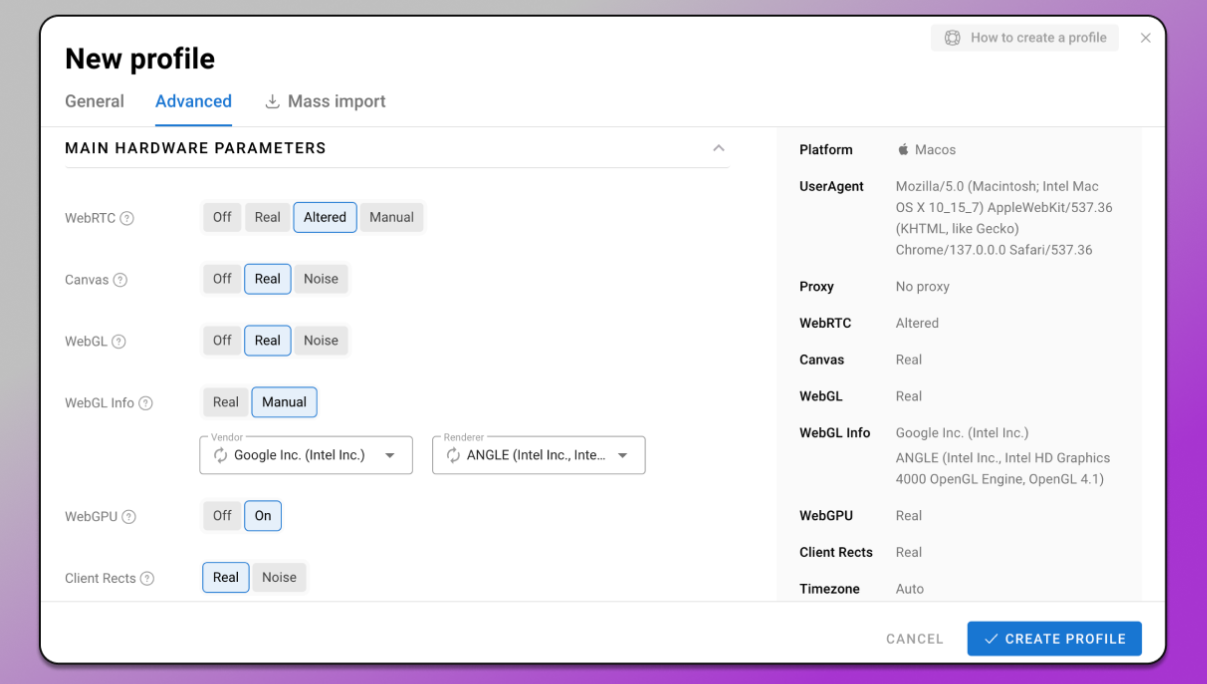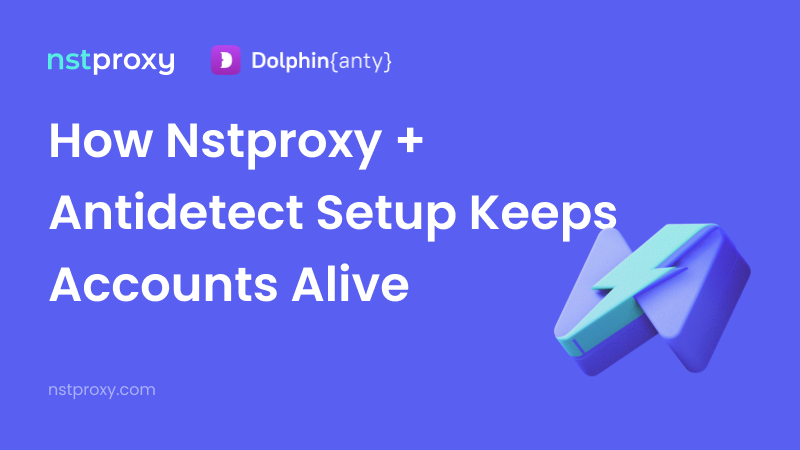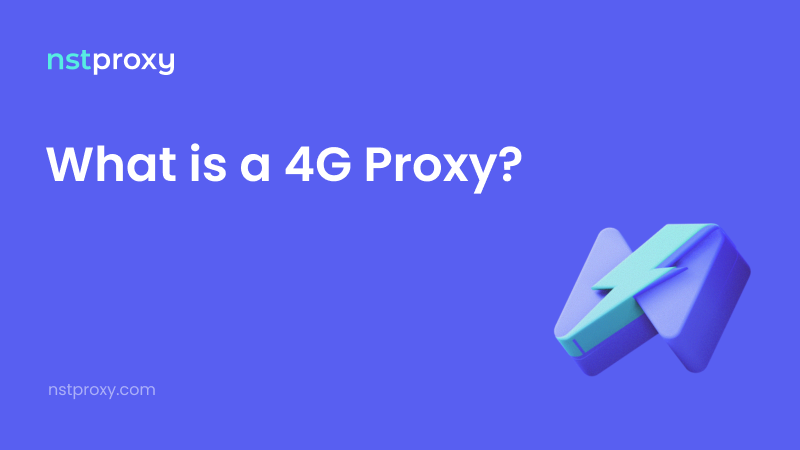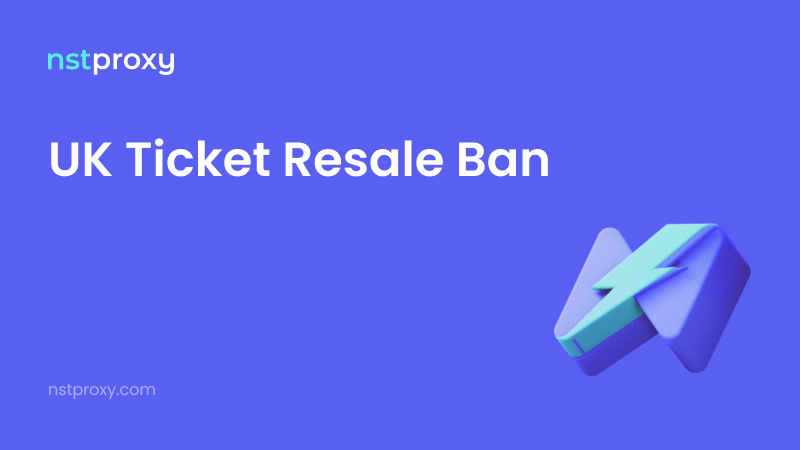Ad platforms like Meta and Google don’t just dislike multi-accounting — they actively train machine-learning models to spot it. These systems learn from billions of interactions and separate genuine users from orchestrated farms with increasing accuracy.
Below is a practical look at what platforms actually see, why accounts get flagged, and how to adapt so your profiles last longer.
What Platforms Really Observe
Before you click a single button, tracking starts:
- Technical signals. IP, device fingerprint, OS and browser details, language, timezone, user agent and more. Any one item is weak; together they form a unique “print.”
- Behavioral telemetry. Cursor paths, scroll rhythm, dwell time, order of actions, hesitation. Human patterns are irregular; scripted ones aren’t.
- Account and app links. SSO/logins let ecosystems observe activity across sites, devices, and sessions.
- Low-level browser layers. Canvas, WebGL, AudioContext, LocalStorage, cookies, API quirks—all help stitch identity.
- Cross-device/session stitching. Phone → desktop → new IP? Systems correlate dozens of clues and often link it back to the same operator.
Why “Clean” Accounts Still Get Flagged
Even a fresh profile can trigger models if the picture looks off:
- Mechanical pacing. Blitzing funnels, pixel-perfect timing, and identical session length scream automation.
- Copy-paste behavior. Several accounts repeat the same clicks, routes, and naming conventions from the same environment.
- Geo/time contradictions. A profile “travels” from DE to VN to BR within minutes, with matching behavior and mismatched locales.
- Inherited contamination. Reused proxies, cookies, or patterns from previously banned setups transfer risk.
- Template content/actions. Recycled naming, campaign structures, and page flows are easy correlations.
- Weak proxy footprint. Noisy IP ranges, unstable routes, mismatched language/timezone, or shallow emulation raise red flags fast.
How to Adapt: Core Principles that Extend Lifespan
Beating antifraud isn’t about hiding one variable — it’s about presenting a coherent, human, and unique environment.
- Choose high-quality proxies. Favor residential/ISP IPs with clean history over cheap, overused datacenter ranges.
🔹 Nstproxy at a glance: large global pool (110M+ active IPs across 195+ countries), enterprise-grade uptime (99.99%), and smart rotation that reduces captchas/blocks. Suitable for scraping, e-commerce monitoring, SEO, social media, automation, and Web3 tasks.
- Isolate environments per profile. Distinct OS/browser fingerprints, fonts, timezone, language, WebRTC/Canvas posture, and extension sets. No sharing.
- Look human. Vary sequence, speed, and depth of navigation. Add “noise” (detours, pauses, micro-interactions) that real users produce naturally.
- Automate with randomness. Scripts should diversify paths and timing, not clone them.
- Warm gradually. Fresh accounts with modest, consistent activity accumulate trust; reputation often cushions small anomalies later.
Why Dolphin{anty} Matters
A strong proxy is only half the puzzle. The other half is an antidetect browser like Dolphin Anty, which lets you customize every parameter of your online identity:
- user agent
- timezone
- language
- WebRTC
- Canvas
- fonts
- extensions
With Dolphin Anty, each profile runs in its own isolated environment, appearing as a distinct real user instead of a clone.

👉 When paired with clean, stable proxies from providers like Nstproxy, this setup drastically reduces correlations that antifraud systems rely on — giving your accounts a much longer lifespan.
Quick Setup Checklist
- Pick residential/ISP pools with reliable rotation and low complaint history.
- Keep per-profile isolation: do not reuse fingerprints, cookies, or extensions.
- Align IP/geo/timezone/language coherently.
- Randomize flows and timing; avoid deterministic scripts.
- Ramp spend/actions progressively; track health signals and retire risky profiles early.
Bottom Line
Antifraud bans aren’t random — they follow patterns models were trained to detect.
The practical way to survive is to remove correlations:
- use reputable proxies and antidetect browser (like Dolphin Anty),
- isolate each environment,
- behave like a person (not a script),
- and scale activity with patience.
Do that consistently, and your accounts live longer — and your campaigns stay profitable.



